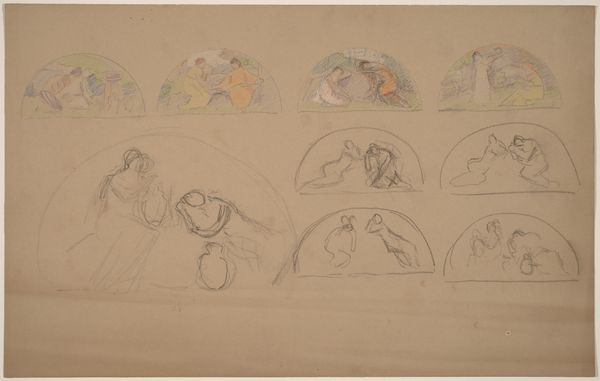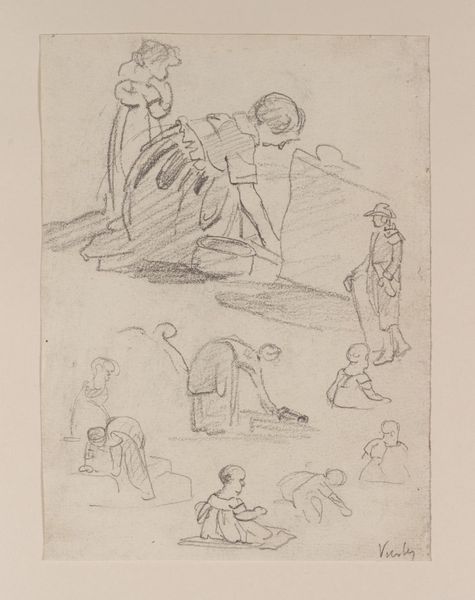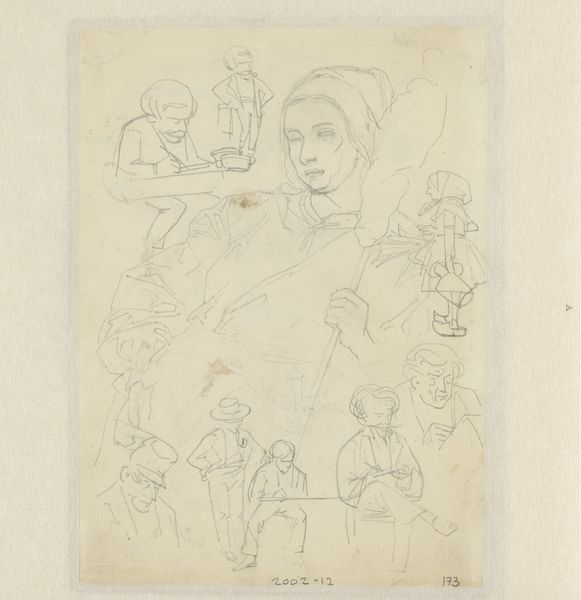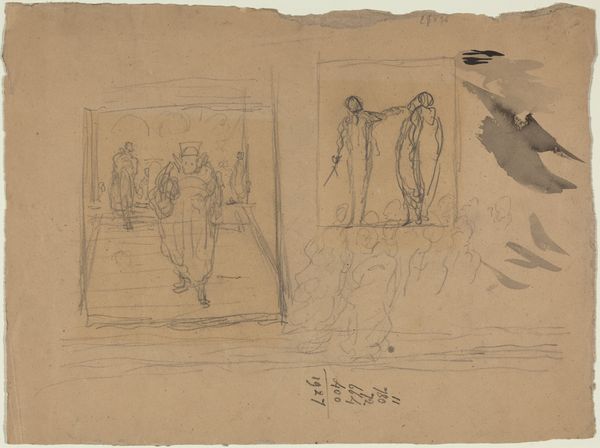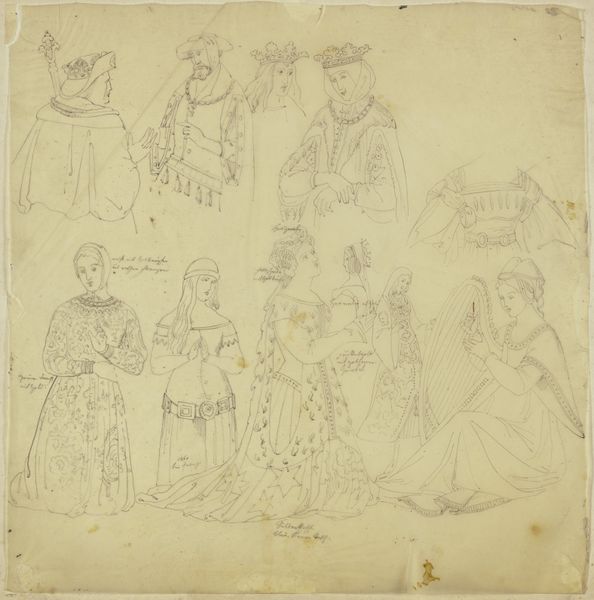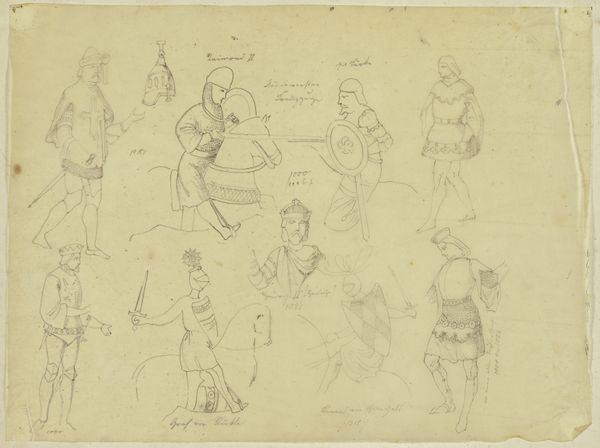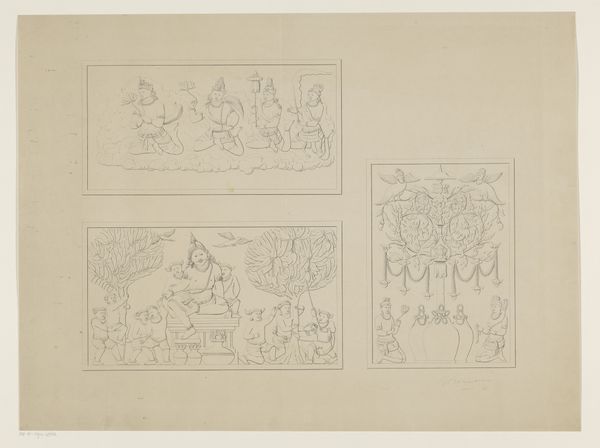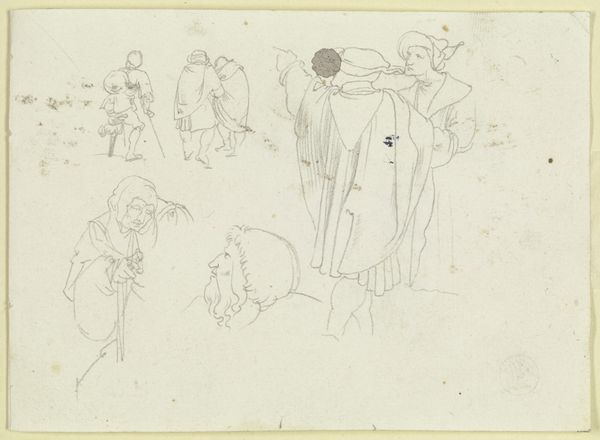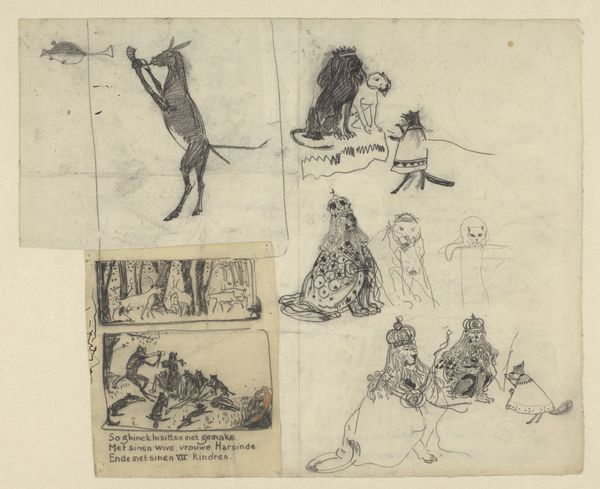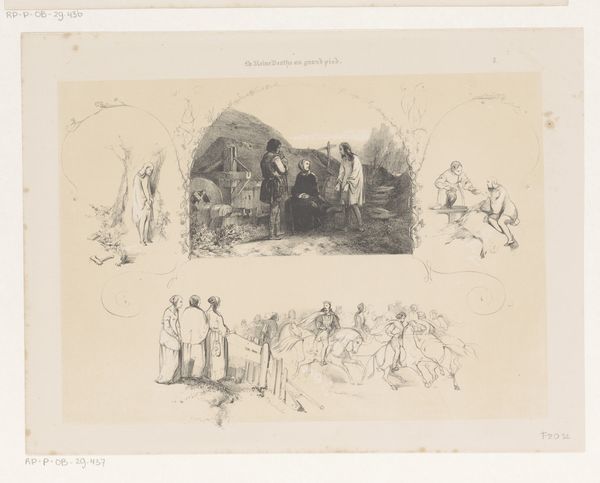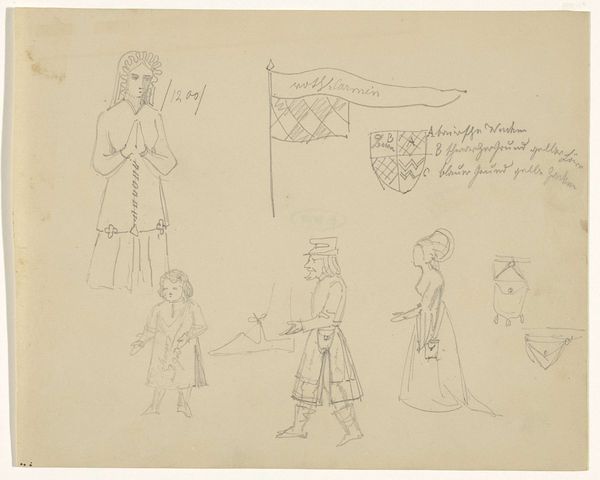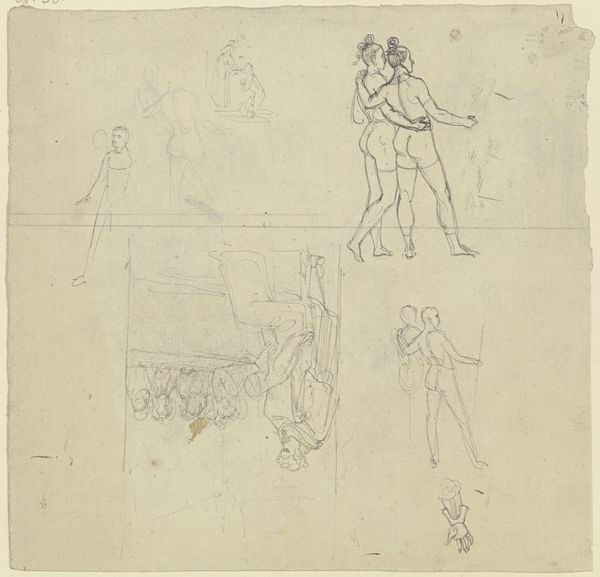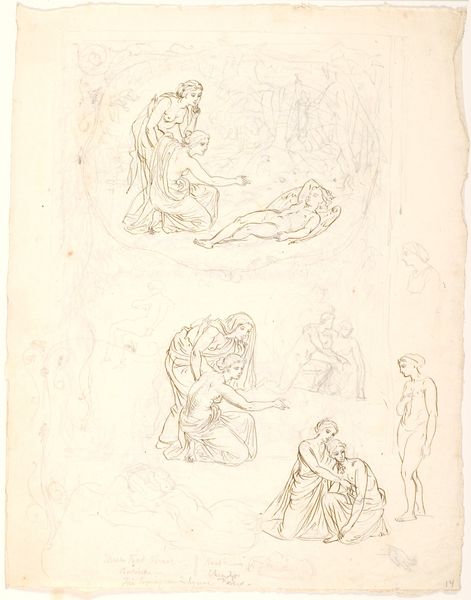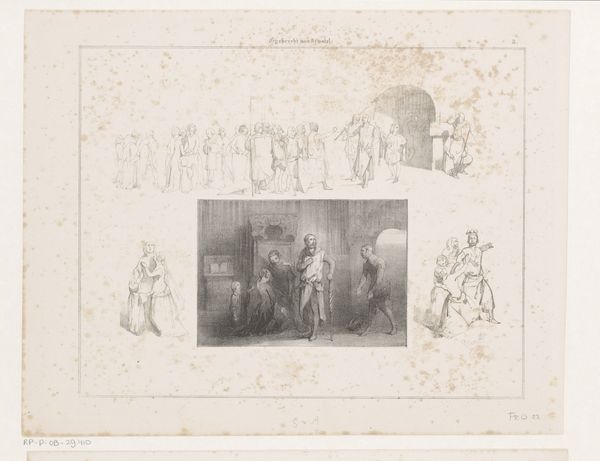
drawing, paper, pencil
#
portrait
#
drawing
#
ink drawing
#
figuration
#
paper
#
pencil
#
academic-art
Dimensions: sheet: 29.6 × 46.8 cm (11 5/8 × 18 7/16 in.)
Copyright: National Gallery of Art: CC0 1.0
Editor: This is "Studies for a Lunette" by Charles Sprague Pearce, dating from around 1890 to 1897. It appears to be a pencil and ink drawing on paper. What immediately strikes me is how preliminary and almost ephemeral it feels, like a fleeting thought captured on paper. What do you see in this piece? Curator: It's interesting that you pick up on that feeling of transience. Looking at this work, I see an artist grappling with monumental themes in a rapidly changing world. The lunette format itself has historical baggage – often used in churches or public buildings to depict allegorical or religious scenes. Pearce, an American artist trained in Paris, is wrestling with tradition. He's exploring ways to connect classical ideals with modern sensibilities, and there's this underlying tension. Editor: Tension how? The sketches seem so calm and classically inspired. Curator: Calm on the surface, perhaps. But consider the period. This is the late 19th century – a time of massive social upheaval, of questioning traditional authority, and of burgeoning feminist movements. Can you see hints of that? Editor: Now that you mention it, the woman in the lower right corner seems quite confident and active. It is hard to be sure with just the sketch, but does not seem as posed and idealized as other academic works. Curator: Exactly! This is not simply about aesthetic beauty. Pearce is working through ideas about the role of women, and their representation, in a changing society. How can art grapple with these urgent questions? It’s a dialogue between the established forms of representation and the emerging narratives of the time. These rapid sketches reveal that process beautifully. What do you make of this conversation? Editor: This conversation truly enhances my interpretation of this artwork, the interplay between traditional art styles and progressivism, particularly in the role and portrayal of women, really makes it pop! Thanks.
Comments
No comments
Be the first to comment and join the conversation on the ultimate creative platform.
